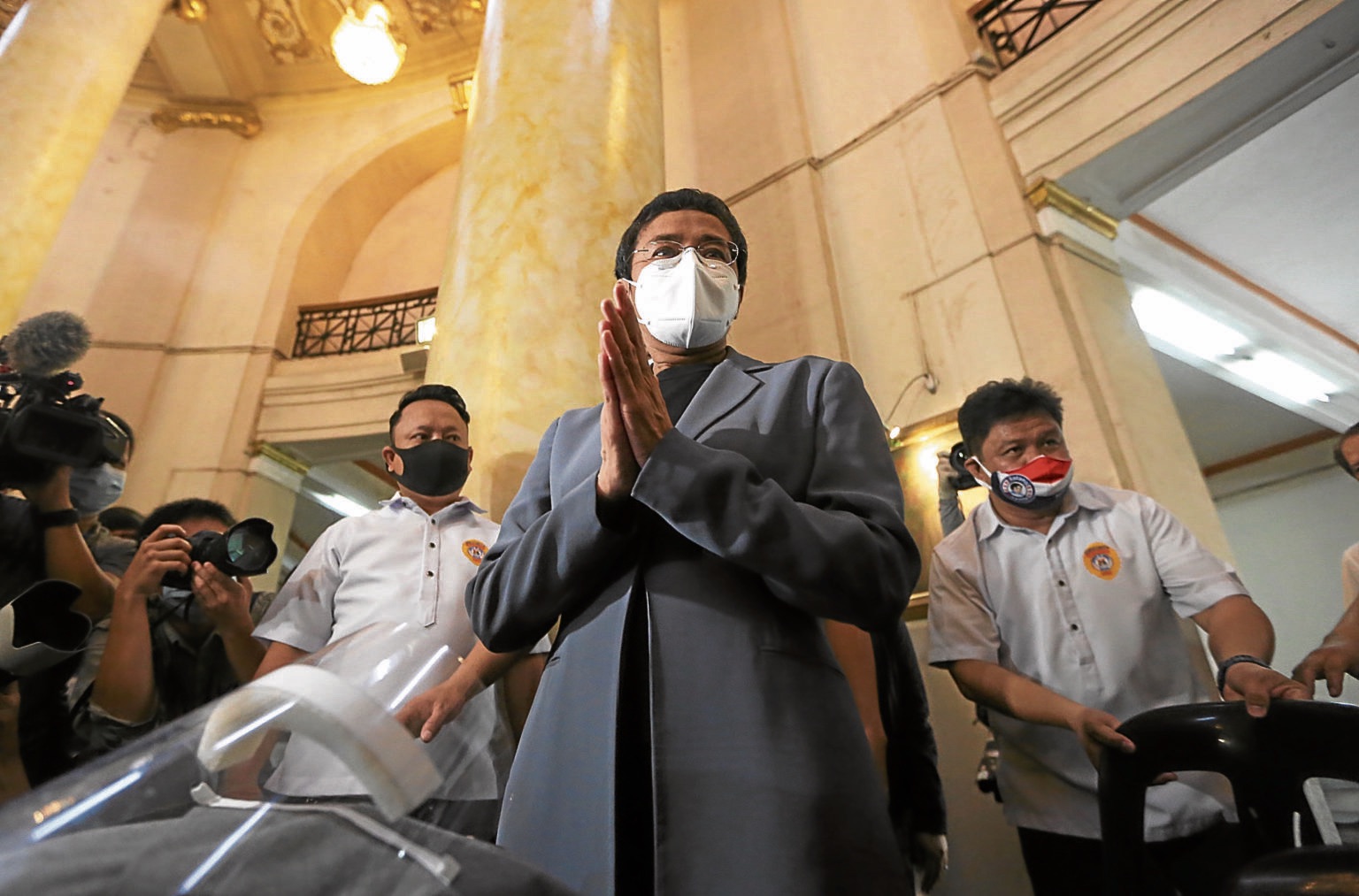
THE United States on Tuesday, June 16, expressed concern over Rappler executive editor and chief executive officer Maria Ressa and writer Reynaldo Santos Jr. being convicted of cyber libel by a Manila court.
“The United States is concerned by the trial court’s verdict against journalists Maria Ressa and Reynaldo Santos and calls for resolution of the case in a way that reinforces the U.S. and Philippines’ long shared commitment to freedom of expression, including for members of the press,” said U.S. Department of State spokesperson Morgan Ortagus in a statement.
Meanwhile, U.S. Senators Edward Markey, Patrick Leahy, and Dick Durbin slammed the court’s verdict, calling it a “travesty of justice.”
“It is shocking to see the Philippine government strain to extend its legal reach to target journalists while so many extrajudicial abuses cry out for investigation and prosecution,” they said.
“At the very least, the defendants must be afforded every opportunity to appeal this decision,” they added.
Peter Greste, UNESCO Chair in Journalism and Communication, likewise, criticized the court’s decision, calling it a “blow to journalists…to press freedom in the Philippines, and to stability in the region.”
Even former U.S Secretary of State Hillary Clinton voiced out her support for Ressa.
Maria Ressa was convicted in the Philippines yesterday for doing her job.
As Amal Clooney wrote, the message to other journalists is “Keep quiet, or you’ll be next.”
We must fiercely protest attacks on the press. They are attacks on democracy. https://t.co/YYyamMVfht
— Hillary Clinton (@HillaryClinton) June 15, 2020
“Maria Ressa was convicted in the Philippines yesterday for doing her job. As Amal Clooney wrote, the message to other journalists is ‘Keep quiet, or you’ll be next’,” she said on Twitter.
“We must fiercely protest attacks on the press. They are attacks on democracy,” she added.
International news outlets also took a stand both for Ressa and press freedom.
“It is not merely that Ms. Ressa and her colleagues need and deserve support: her case has such frightening implications beyond her own country. When Mr. (Rodrigo) Duterte is given a free pass for his behaviour, other leaders take note,” wrote The Guardian in its editorial.
“Without freedom of the media, it is impossible to protect other freedoms: citizens cannot know what is being done in their name. Journalists are targeted because they sound the alarm. They must not be silenced,” it added.
The Washington Post, meanwhile, urged the U.S. government to show “much greater resistance” against Ressa’s guilty verdict.
“The Philippines’ slide toward dictatorship deserves much greater resistance from Washington – if not from the White House, then from Congress,” the news outlet said.
“A court verdict that could lead to a prison sentence of up to 7 years for her and a colleague showed that Mr. Duterte is succeeding in compromising the Philippines’ justice system, even as he personally flouts the rule of law,” it added.
Ressa and Santos were found guilty of violating Section 4(c)(4) of the Cybercrime Prevention Act of 2012, or cyber libel, sentencing them to the indeterminate penalty of imprisonment ranging from six months and one day as a minimum to up to six years, according to the sentence handed down by Manila Regional Trial Court Branch 46 Judge Rainelda Estacio-Montesa.
According to Rappler, the court allowed bail under the same bond. It also ordered Ressa and Santos to pay complainant Wilfredo Keng P200,000 in moral damages and another P200,000 (a total of $7,900) in exemplary damages.
Keng in 2017 filed cyber libel charges against the two for naming him in an article as the owner of a sports utility vehicle (SUV) used by the late Chief Justice Renato Corona, who was then facing impeachment in 2012.
Meanwhile, the court found Rappler Inc. to have no corporate liability in the case.
“A news organization who claims to adhere to accuracy, fairness and balance in terms of reporting, would have retracted, or at the very least issued a clarificatory article if there have been some indications of falsity to its previous article… This clearly shows actual malice,” the court’s decision read.
“[T]he court is mandated to decide solely on the basis of the evidence presented by the parties and to apply the law. No more, no less,” it added. “The Courts are tasked to strike a balance between the enforcement of one’s right to speak his mind and the protection of another’s right against defamation of his honor and reputation without regard to the stature of the personalities involved.”







Well, if they have read the verdict, it seems that Maria Ressa thought that she would win by not letting herself be put on the bench. Also, She thought that as an “Award” winning individual, the courts would be in favor. But sad to note, the judge that the case was raffled to was a judge who has the expertise in cyber law.
Also, the problem with these guys is that since Rappler is a company funded allegedly by a company with links to the American intelligence service, it would be a detriment to their hold on the Philippines.